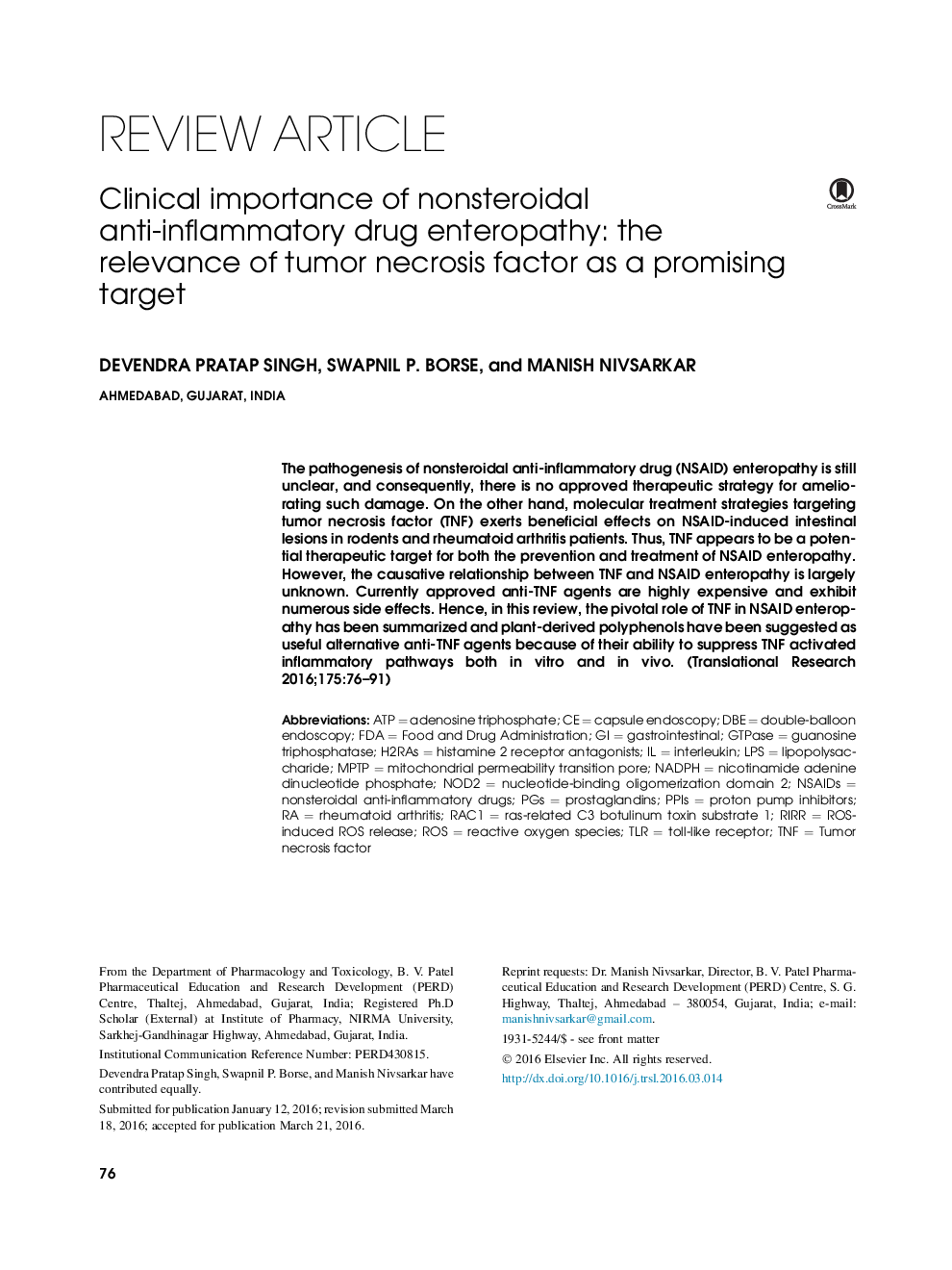| Article ID | Journal | Published Year | Pages | File Type |
|---|---|---|---|---|
| 6155984 | Translational Research | 2016 | 16 Pages |
The pathogenesis of nonsteroidal anti-inflammatory drug (NSAID) enteropathy is still unclear, and consequently, there is no approved therapeutic strategy for ameliorating such damage. On the other hand, molecular treatment strategies targeting tumor necrosis factor (TNF) exerts beneficial effects on NSAID-induced intestinal lesions in rodents and rheumatoid arthritis patients. Thus, TNF appears to be a potential therapeutic target for both the prevention and treatment of NSAID enteropathy. However, the causative relationship between TNF and NSAID enteropathy is largely unknown. Currently approved anti-TNF agents are highly expensive and exhibit numerous side effects. Hence, in this review, the pivotal role of TNF in NSAID enteropathy has been summarized and plant-derived polyphenols have been suggested as useful alternative anti-TNF agents because of their ability to suppress TNF activated inflammatory pathways both in vitro and in vivo.
